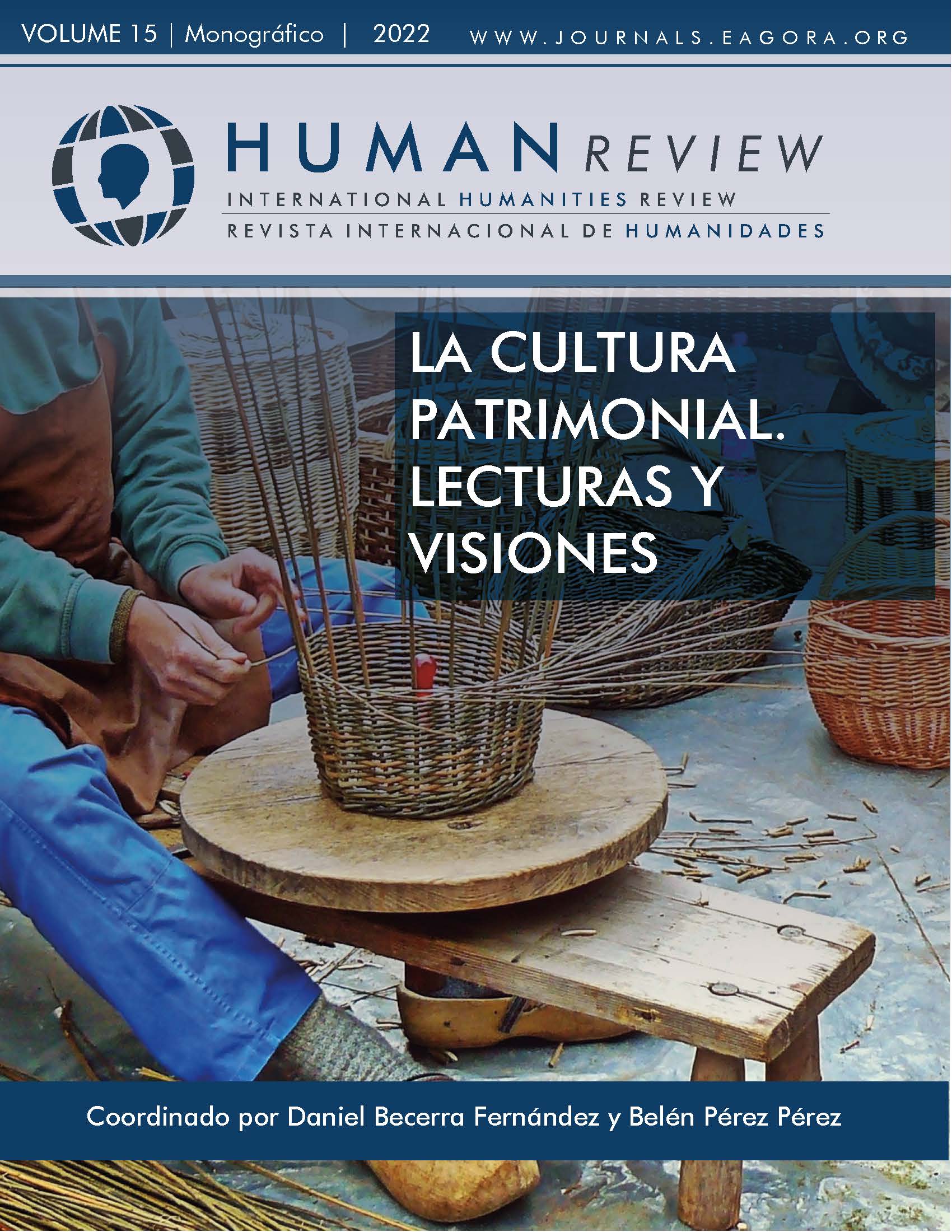SOS of the leather, footwear and leather goods sector of the city of Bogotá
Survival strategy in the new normality
DOI:
https://doi.org/10.37467/revhuman.v11.4269Keywords:
Intellectual capital, Industry 4.0, digital maturity, Value chain, Footwear SectorAbstract
The objective of this research is to identify the needs of the leather, footwear and leather goods sector in the city of Bogota, in terms of digitalization. This is an exploratory, cross-sectional, mixed research, whose results show the urgent need for programs and strategies that allow small and micro-entrepreneurs to generate explicitly designed synergies that respond to solve neuralgic problems for these industries, in dynamics of knowledge transfer mainly at the level of technological competencies, support in digitization processes that help them to remain relevant in the new normality and to adapt to the dynamics that it imposes.
References
Álvarez Marín, N., & Trujillo, T. J. (2015). Cooperación e integración en la gestión de la cadena de suministros en pymes del calzado en la ciudad de Bogotá. Dimensión Empresarial, 13(1), 147-164. DOI: https://doi.org/10.15665/rde.v13i1.343
ACICAM. 2022. La Asociación Colombiana de Industriales del Calzado, el Cuero y sus Manufacturas. https://acicam.org/
Ramírez, Raranja, A., & Téllez, Molano. Angie C. (2020). Factores que limitan el crecimiento en el mercado a las pymes de calzado del barrio. Universidad Cooperativa de Colombia .
Artuz, L. A., Martínez, M. S., & Morales, C. J. (2011). Las industrias curtiembres y su incidencia en la contaminación del río Bogotá. Isocuanta, 1(1).
Azizi, V., & Hu, G. (2020). Multi-product pickup and delivery supply chain design with location-routing and direct shipment. International Journal of Production Economics, 226. https://doi.org/10.1016/j.ijpe.2020.107648 DOI: https://doi.org/10.1016/j.ijpe.2020.107648
Bernal González, Y., & Quevedo Camacho, M. (2017). Clúster del sector del cuero, calzado y marroquinería en Bogotá. In Clúster del sector del cuero, calzado y marroquinería en Bogotá. https://doi.org/10.15332/tg.pre.2020.00117 DOI: https://doi.org/10.15332/tg.pre.2020.00117
Buendía Rice, E. A. (2013). El papel de la Ventaja Competitiva en el desarrollo económico de los países. Analisis Economico, XXVIII(69).
CCB. (2022, June 27). Camara de Comercio de Bogotá. https://www.ccb.org.co/
Cerón Ordoñez, W., Avendaño Poveda, C., & Rodríguez, D. (2020). Sistema de seguimiento GPS para la optimización de rutas de distribución en última milla. Mare Ingenii, 2(2). https://doi.org/10.52948/mare.v2i2.203 DOI: https://doi.org/10.52948/mare.v2i2.203
Conpes, 3527. (2008). Politica Nacional de Competitividad y Productividad.Consejo Nacional de Politica Economica y Social. Cundinamarca. Bogota.
Coria Páez, A. L., Roman, I. P., & Torres Hernández, Z. (2013). Propuesta de metodología para elaborar una investigación científica en el área de Administración de Negocios. (Spanish). Methodological Proposal for Developing a Scientific Research in the Area of Business Administration. (English), 35.
CSCMP. (2021). informe de transformación digital en la planificación de la cadena de suministro. https://cscmp.org/
De Souza Pereira, C. (SaberEs, 6(2)). Memoria organizacional y gestión del conocimiento. 2014. DOI: https://doi.org/10.35305/s.v0i6.93
Ducón, J., Torres, A., & Muñoz, J. (2018). Aportes al fortalecimiento de la aglomeración productiva local como estrategia de manejo del riesgo operativo en la industria de cuero, calzado y marroquinería en Bogotá. Pensamiento & Gestión, 6276(44).
Ekinci, E., Mangla, S. K., Kazancoglu, Y., Sarma P.R.S., Sezer, M. D., & Ozbiltekin-Pala, M. (2022). Resilience and complexity measurement for energy efficient global supply chains in disruptive events. Technological Forecasting and Social Change, 179. https://doi.org/10.1016/j.techfore.2022.121634 DOI: https://doi.org/10.1016/j.techfore.2022.121634
Garzoni, A., de Turi, I., Secundo, G., & del Vecchio, P. (2020). Fostering digital transformation of SMEs: a four levels approach. Management Decision, 58(8). https://doi.org/10.1108/MD-07-2019-0939 DOI: https://doi.org/10.1108/MD-07-2019-0939
He, X., Ping, Q., & Hu, W. (2022). Does digital technology promote the sustainable development of the marine equipment manufacturing industry in China? Marine Policy, 136. https://doi.org/10.1016/j.marpol.2021.104868 DOI: https://doi.org/10.1016/j.marpol.2021.104868
Jiménez Yunga, O., Jaramillo Carrión, L., & Salcedo-Muñoz, V. (2022). Tendencias digitales: diagnóstico de aplicación en PYMES en la Ciudad de Machala, Ecuador Post-pandemia. Dilemas Contemporáneos: Educación, Política y Valores. https://doi.org/10.46377/dilemas.v9i2.3160 DOI: https://doi.org/10.46377/dilemas.v9i2.3160
Logitec. (2020). La digitalización como oportunidad ante el COVID -19. ¡debemos salir del letargo! Logitec.Com, 1–1. https://www.logitech.com/content/dam/logitech/vc/es_es/pdf/
Maliqueo Pérez, C., González Candia, J., Mardones Espinosa, R., & Ardiles Briones, M. (2021). Gestión de personas y las barreras para innovar en la transformación digital. Revista Venezolana de Gerencia, 26(94). https://doi.org/10.52080/rvgluzv26n94.4 DOI: https://doi.org/10.52080/rvgluzv26n94.4
Manfreda, A. (2017). Is e-government serving companies or vice-versa? Lecture Notes in Business Information Processing, 299. https://doi.org/10.1007/978-3-319-65930-5_21 DOI: https://doi.org/10.1007/978-3-319-65930-5_21
Manyika, J., Chui, M., Miremadi, M., Bughin, J., George, K., Willmott, P., & Dewhurst, M. (2017). MGI-A-future-that-works_Full-report. Mckinsey Global Institute, January.
McKinsey. (2016). ACTUALIZACIÓN Y DEFINICIÓN DEL PLAN DE NEGOCIO PARA EL SECTOR TEXTIL Y CONFECCIONES EN COLOMBIA (Colombia Productiva).
MINTIC. (2019). Análisis del sector dirección de gobierno digital. Ministerio de Las Tecnologías de La Información, 57(1).
Ocampo Vélez, P. C. (2009). Gerencia logística y global. Revista Escuela de Administración de Negocios, 66. https://doi.org/10.21158/01208160.n66.2009.477 DOI: https://doi.org/10.21158/01208160.n66.2009.477
Pereira, A. M., Moura, J. A. B., Costa, E. D. B., Bazaki, E., & Wanick, V. (2022). Customer models for artificial intelligence-based decision support in fashion online retail supply chains. Decision Support Systems, 158(113795). DOI: https://doi.org/10.1016/j.dss.2022.113795
Picco, C. M., Regenhardt, S., Balsamo, N., & Palma, S. (2020). Tecnologías de Fabricación Digital y Biomateriales. AJEA, 5. https://doi.org/10.33414/ajea.5.785.2020 DOI: https://doi.org/10.33414/ajea.5.785.2020
Porter, M. (2007). La ventaja competitiva de las naciones. Harvard business review, 85(11), 69-95.
Porter, M. E. (1991). La cadena de valor y la ventaja competitiva. In Ventaja competitiva: creación y sostenimiento de un desempeño superior. 51-78.
Suñol, S. (2006). Aspectos teóricos de la competitividad. Ciencia y Sociedad, 31(2). https://doi.org/10.22206/cys.2006.v31i2.pp179-198 DOI: https://doi.org/10.22206/cys.2006.v31i2.pp179-198
WEF, W. E. F. (16 diciembre de 2020). The global competitiveness report: How countries are performing on the road to recovery. In World Economic Forum. https://www.weforum.org/reports/the-global-competitiveness-report-2020/
Downloads
Published
How to Cite
Issue
Section
License
Those authors who publish in this journal accept the following terms:
- Authors will keep the moral right of the work and they will transfer the commercial rights.
- After 1 year from publication, the work shall thereafter be open access online on our website, but will retain copyright.
- In the event that the authors wish to assign an Creative Commons (CC) license, they may request it by writing to publishing@eagora.org









